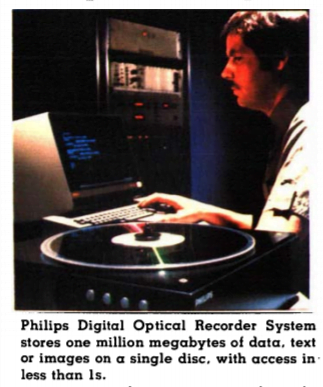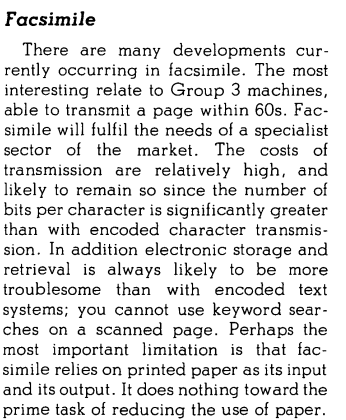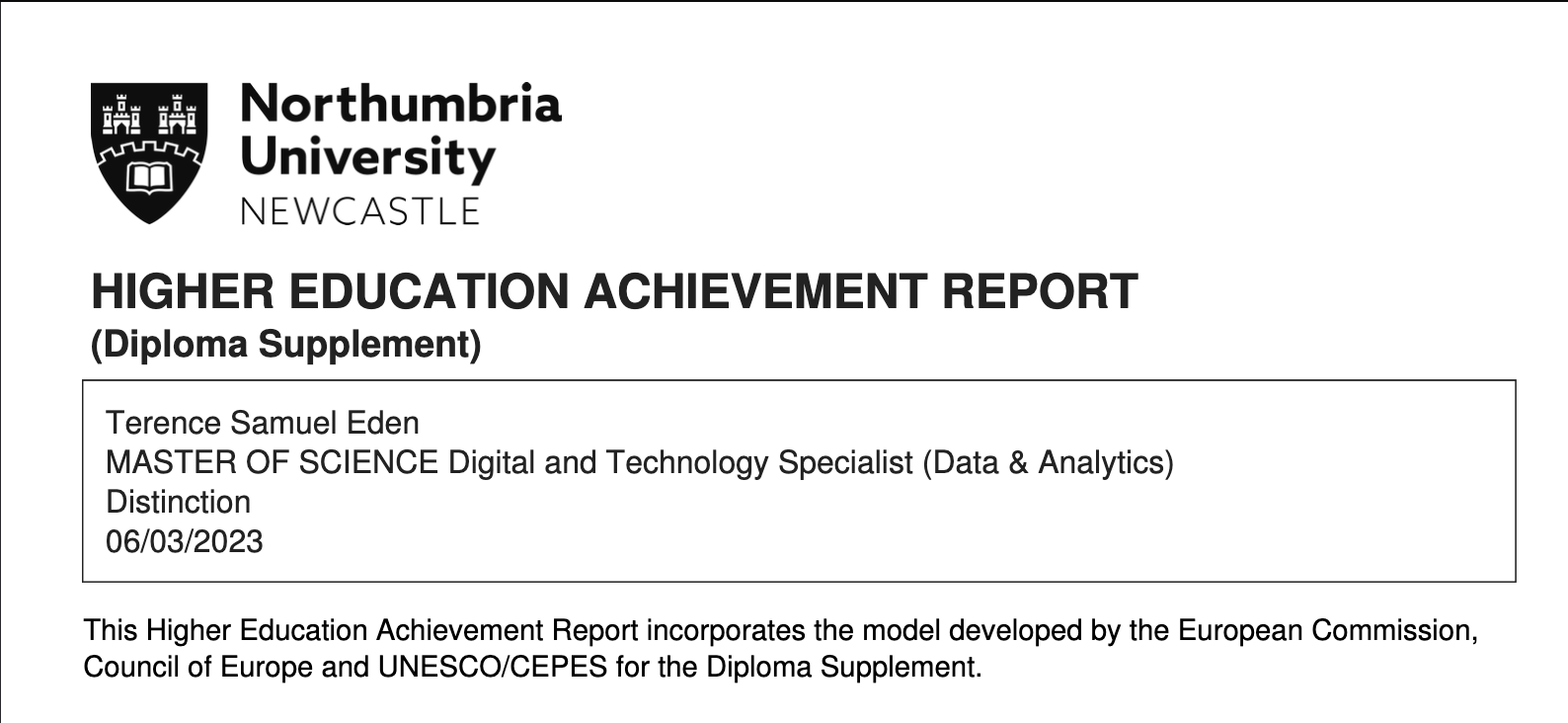Predicting The Future - What 1981 Got Wrong
As part of my MSc, I fell down a research rabbit-hole of 1980s "Office Of THE FUTURE!!" articles. Ultimately, I couldn't find a way to include it in my research - so you're getting my cast offs.
So, I present to you some choice predictions from "Technology and the office of the future" by B. W. Manley.

Low cost computers (VDU) - yup! Data storage - the article talks about storing "the entire contents of the Encyclopaedia Britannica on one side of a disc — words and pictures".

Digital networking! Brilliant! Voice Command! Wait... what?

By 1991 we didn't really have practical voice recognition systems. And certainly nothing that could replace the keyboard. Here we are FORTY YEARS later and most of us are thumping away on keyboards for long-form writing. If we're driving, we can scream "CALL MUM" and Siri will probably get it right. And there's the occasional use of voice recognition to compose a quick text. But we're not in 1981's future yet.
What about video? Sadly, too expensive and not useful enough.

After a year of COVID, I think we can all agree that Zoom has encouraged more meetings than are strictly necessary!
The humble FAX was about to become the big tech of the 1980s. Sadly, some places are still stuck with it - despite the obvious limitations.

What have we learned today?
Predicting the future is hard. Saying that something will always be too expensive is never a good bet.
Knowing that a technology has serious shortcomings - like not being able to search a fax - is irrelevant when it is simply a more convenient version of the existing paradigm.
Unintended consequences are the most exciting part of any technology. We don't use voice control in a noisy, open plan office - but we use it at home. Videocalls do increase the number of meetings - as predicted - but they also do slash travel budgets.
What's your favourite prediction from the 1980s?



Hoverboards.
('real' ones - not those neck-breaking segways without handles...)
Tony Hawks on a not quite hoverboard:
Technology demonstration of superconductor levitation by the Royal Institution:
And the current crown goes to... Lexus, of all people! They pretty much combined the two.
So... it exists, but still not yet in a practical form, and we've blown way past 2015...